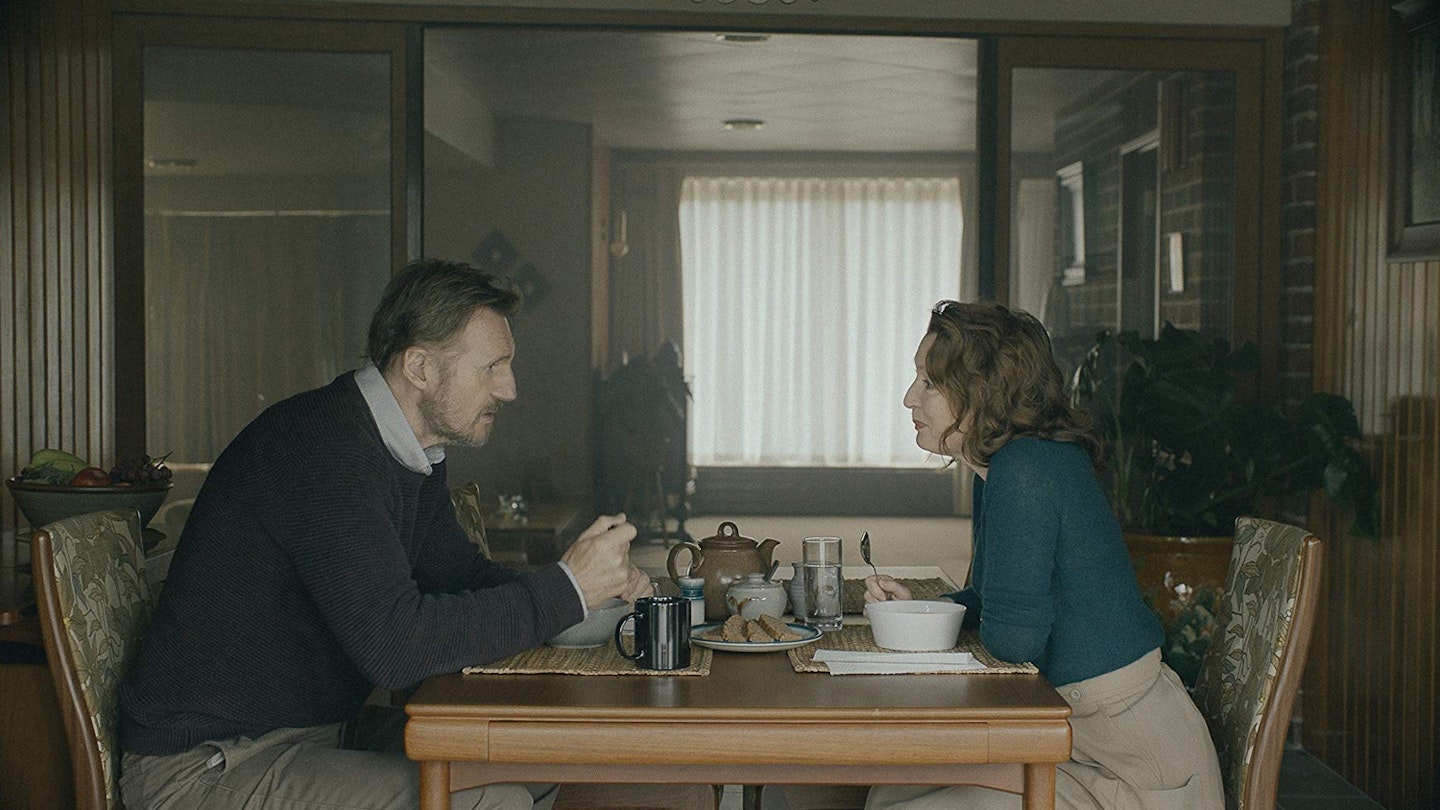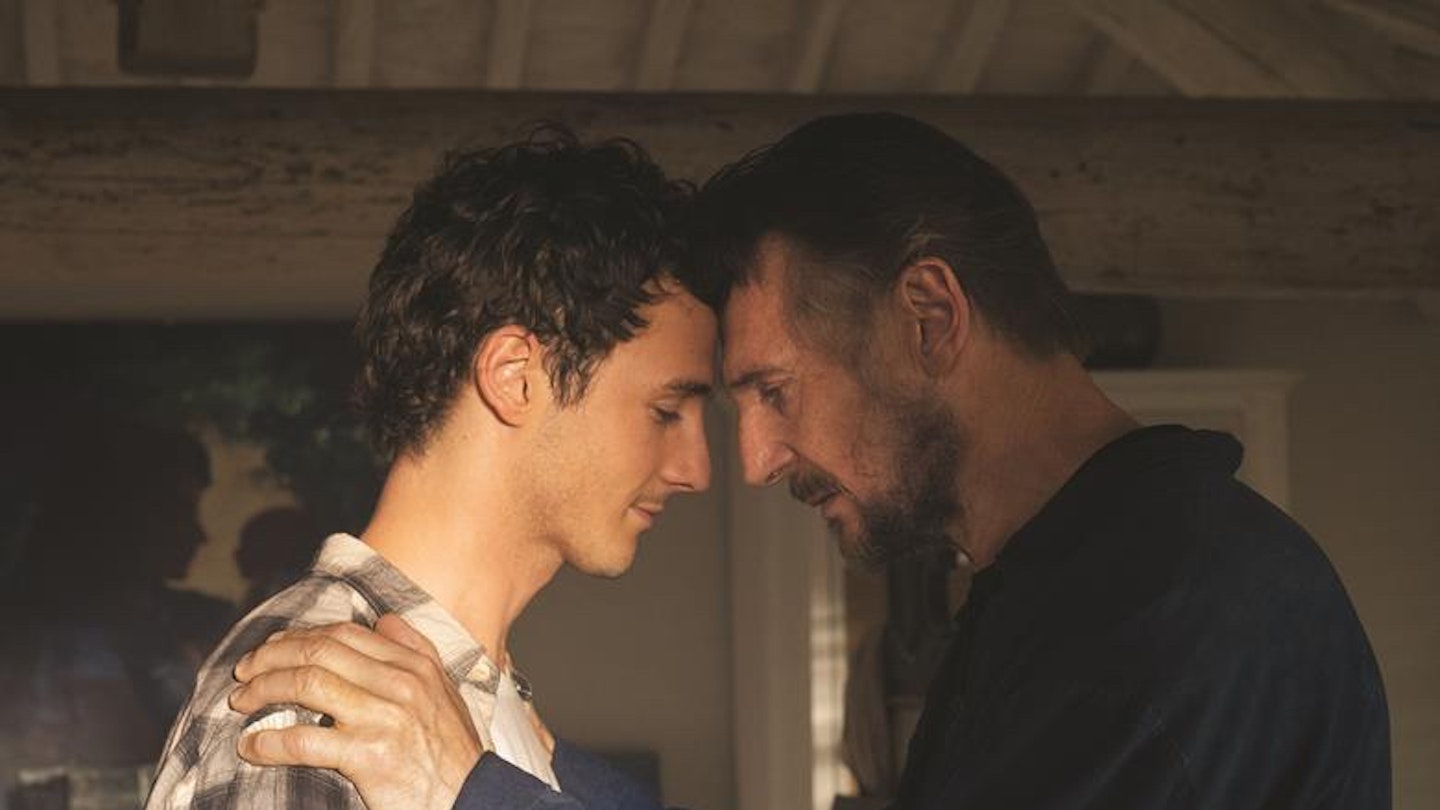Arriving with little fanfare, Ordinary Love is a sad, low-key treat. Directed by married filmmaking team Lisa Barros D'Sa and Glenn Leyburn, best known for 2012 punk rock anthem Good Vibrations, their latest is a complete change of gear, a beautifully observed look at a couple trying to deal with the unthinkable. Poignant and painful, it’s a film about how we cope, brought to life by two stellar performances from its two leads.
The film is terrific on the realities of care, often inhabiting the spaces and scenes other films leave out.
Written by Owen McCafferty who went through a similar ordeal when his wife contracted cancer, it starts as a micro portrait of a retired middle-aged couple. Joan (Manville) and Tom (Neeson) fill their days with a brisk sea-front walk (always turning back at the same tree), debating the workings of Fitbits, watching TV and bickering about the amount of tomato juice Tom needs — all the while trying to come to terms with the sadness over the death of their daughter Debbie (we never find out details). Their low-level melancholic routine is broken when Joan finds a lump in her left breast. An early GP diagnosis suggests a cyst with only a three out of five chance of being cancer. Tom reads this as 50:50; Joan sees three as closer to five. When the devastating news comes, amidst all the grief, Manville delicately conveys a sense of smugness at being right.
As Joan’s condition gets worse in increments, the film is terrific on the realities of care — the monotonous journeys to the hospitals for visits, the kind of hollow words of encouragement from other patients — often inhabiting the spaces (waiting rooms) and scenes (a sex scene as they bid a tender farewell to Joan’s breasts) other films leave out. At one point, Tom pops to the loo as Joan is called for her diagnosis — the wait for him to return is real and agonising. There’s also gallows humour; during a chat with a terminally ill patient, Joan uses her wig as a tea cosy.
There are observations about the NHS — there’s a whole dialogue about paying for parking at a hospital — but this isn’t a political film, it’s a deeply human one. While it is a joy to see Neeson once again use his skills to etch a real human being rather than whack terrorists — Tom is an amiable shmoe always ready with a bad joke — this is Manville’s movie, subtle, resilient, heartbreaking. Together, they take something that is tragically common place and make it heart-rending.


